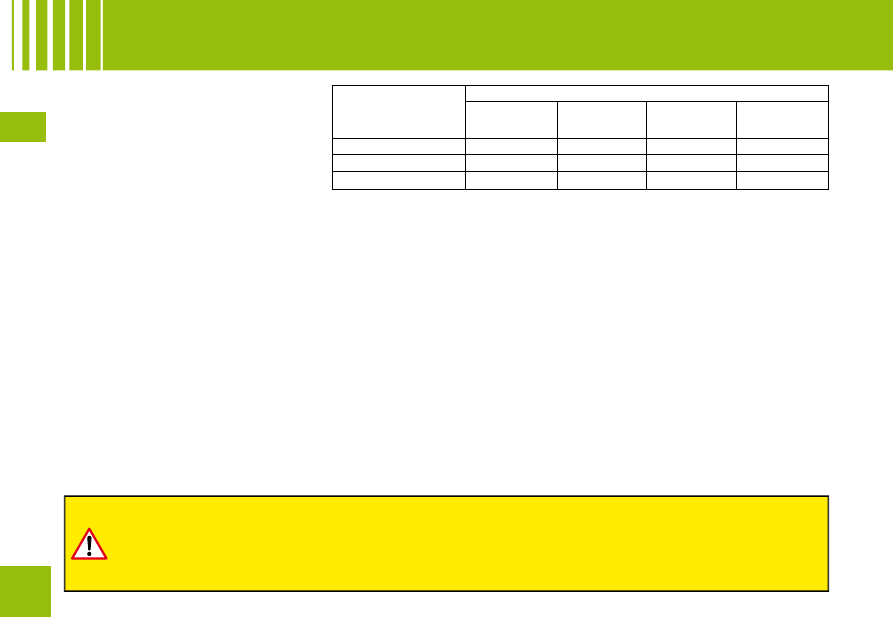Citroen C6 Dag (2008 year). Instruction - part 7

100
III
C H I L D R E S T R A I N T S
CHILD SEATS SECURED BY
MEANS OF THE VEHICLE
SEAT BELT
In conformity with European law,
this table shows you the possibili-
ties for the installation of univer-
sally approved child seats using a
seat belt, depending on the weight
of the child.
Consult
"User
Precautions",
chapter on "Child Safety" at the
end of this handbook, in order
to ensure that you are installing
your child in conditions of maxi-
mum safety.
Seat position(s)
Weight of child
Up to 10 kg
and up to 13 kg
(groups 0 and 0+)
9 - 18 kg
(group 1)
15 - 25 kg
(group 2)
22 - 36 kg
(group 3)
Front passenger’s (a)
U (R)
U (R)
U (R)
U (R)
Lateral rear
U
U
U
U
Central rear
L1, L2
X
L4
L4
U: Seat position suitable for the installation of a universal rear-facing child
seat and a universal forward-facing child seat position.
U (R): Seat position suitable for installation of a universal rear-facing child
seat and of a forward-facing seat. The vehicle seat should be adjusted
to the highest position.
(a): In the front passenger's seat position, it is imperative to deactivate the
front passenger's airbag if you are installing a "rear-facing child seat"
there. Otherwise the child risks being killed or seriously injured should
the airbag deploy.
Before placing your child in the front passenger’s seat position, consult
the legislation currently in force in your country on the carrying of chil-
dren in this position.
L-: Only the child seats indicated may be installed in the seat position con-
cerned (depending on country). See "Child seats".
X: Position not suitable for installation of a child seat of the weight group
indicated.
In the front passenger's seat position, it is imperative to deactivate the front passenger's airbag if
you are installing a "rear-facing child seat" there. Otherwise the child risks being killed or seriously
injured should the airbag deploy.
Take care to comply with the fi tting instructions given in the child seat manufacturer’s installation
guide.